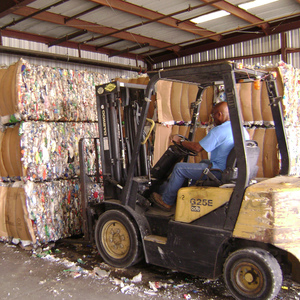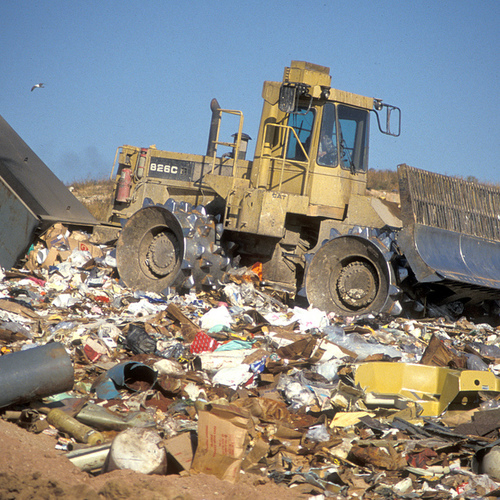
GBA readers get a steady diet of advice on how to improve the energy efficiency and comfort of old houses. The list almost always includes basics like air sealing and adding insulation, and may extend to upgraded mechanical systems and windows.
BlueSolar isn’t so sure that makes sense.
Writing in a recent Q&A post, BlueSolar says he’s not finding good building lots in convenient neighborhoods in the two areas he’s considering, Tucson and Las Vegas. So he’s thinking about buying a cheaper house, tearing it down, and building a new one.
BlueSolar can see pros and cons. On the plus side, he’ll get energy efficiency, comfort, roominess, and all the building details he wants. On the downside, this will probably cost more and take longer.
“I don’t like old houses in general,” BlueSolar says. “They tend to be ridiculously inefficient, uncomfortable, and low tech. I think landfills are fabulous, so I have no problem with sending a bunch of debris to one. I actually think a lot of houses should be torn down and replaced with much improved ones, just like that federal program that encouraged people to junk their old, high-polluting cars.”
So what’s the best route: raze and replace, or fix what you’ve got? That’s the topic for this Q&A Spotlight.
There’s no single answer to that question
That all depends on what you’re starting with, Akos replies. If an existing foundation can be reused it could save a lot of money. If the house is balloon-framed with clapboard siding, demolishing it and rebuilding would be cheaper than trying to make it energy efficient.
“All brick is a bit different,” Akos adds. “Tearing down and rebuilding brick is not cheap. Generally you want…
Weekly Newsletter
Get building science and energy efficiency advice, plus special offers, in your inbox.

This article is only available to GBA Prime Members
Sign up for a free trial and get instant access to this article as well as GBA’s complete library of premium articles and construction details.
Start Free TrialAlready a member? Log in















19 Comments
Any sign of carbon negative builds? So the building sequesters more carbon than used in constructing it? That would add a new line to Bruce King's figure there. Very likely keeping the foundation would be key (since concrete is so high in embodied energy). Then wood throughout. Of course there is also the embodied energy of the deconstruction (and rotting of the materials in the landfill). Would appreciate any pointers to models going this direction.
There's a flawed premise in the comparison of old vs new by GBA: new homes are assumed to be far more efficient.
How many Net Zero new builds are now in the housing stock?! Pitifully few, if I count the examples on NREL and EPA's websites. Even fewer are Passive.
Far more people drive EVs than live in Net Zero homes -- OK unfair apples-to-oranges comparison, I know! But how about this: both Net Zero and EV/PHEVs target the conscientious consumer, both are new, some of these cars cost FAR more than their (old) conventional gas guzzlers ... So there's a monetary point when folks say Net Zero homes aren't significantly more expensive than conventional; YET the electric car adoption has beat out the efficient home. There's >1Million EV/PHEV cars already on the road in the US.
Again, how many Net Zero/Passive homes are there? It's safe to assume new builds are just meeting code minimum, so if someone can retrofit to code minimum, then the comparison of old vs. new is awash.
Perhaps we should be asking more questions.
Nice! I was puzzled by the setup on Peter Yost's example. It reads:
But my brother took one look...
“Tear it down and build new,” my brother advised.
The moral: if you find an existing home you like, it’s probably worth fixing up.
Say what? This was an apparent tear-down candidate from everything that preceded the moral. How is the moral to fix it up? I feel like maybe a stray edit deleted a key part of the setup.
I think Peter's point was that for him and his immediate family, the house had enough positive attributes to keep it and remodel. To his brother, it was a tear down. In other words, differing opinions based on the perceived merits of the house can make it a tear down to one person and a keeper to another. Maybe I read it wrong and should have asked Peter, but he comes by here often enough that we'll probably hear from him soon.
Brian nailed my intent. We liked enough things about the house, including the mostly dry and sound basement/foundation, that we wanted to put the work into it.
I got the impression that BlueSolar either did not or could not find a home that he liked, so that is just too much of an uphill battle.
Thanks Brian - Peter
FYI Scott Gibson, the first instance of Tucson is spelled Tuscon (third para). Common typo. I find that knowing the Spanish pronunciation always clarifies the spelling (tuk-sohn).
On the subject of future recycling, does anyone else question the use of spray foam? Should a decision on whether or not to use spray foam include the thought that it will make future recycling of wood components difficult or impossible? And do the benefits of spray foam today outweigh the future considerations? I'd love to hear thoughts on this.
Does it stick to the wood? (I've never used it.)
Hi BlueSolar.
Yes. Properly cured polyurethane spray foam is a tenacious adhesive that basically glues the assembly together.
Spray polyurethane foam has a nearly identical chemistry to Gorilla Glue.
But it burns great once you get it hot enough, with combustion products comparable to burning wood. Even the HFO blowing agents used for some closed cell foam burns pretty well, and might be disposable in a biomass-energy power plant scheme (TBD.)
HFC blown polyurethane releases the remaining (not combustible) HFC blowing agents as it burns, leaving it to do it's extreme greenhouse gas thing if vented to the atmosphere.
Hi Marc.
Not only will it make recycling challenging, it can make remodeling and repairs challenging. Between these facts, the cost, and the fact that it is one of the less environmentally-friendly insulators, I think we should be reserving spray foam for very specific situations where is helps us solve a problem that other options can't. There's certainly no need for it in new construction.
Hi Brian,
I agree. Unfortunately though, it seems there's a lot of support for spray foam among building scientists. If they're focusing solely on energy conservation, fine, but it's short-sighted and they should include future considerations in their analyses, or at least mention them as a caveat.
Marc, I should have asked before -- why do you want to recycle wood?
Why would you not?
An action always requires justification – or at least more justification than a non-action.
I think I misunderstood. You are asking why someone would recycle, not reuse, wood.
That too. I actually don't know how wood would be recycled. I've only seen it "reclaimed", which seems like an elegant form of reuse. But I don't know of any good reasons to recycle in general, or reasons to recycle wood in particular – I've asked maybe nine environmentalists at this point, and most had a false belief about landfill scarcity or landfill overuse.
I understand your arguments for not recycling, but if as you suggest it makes more sense to landfill and mine them later, it's still a good idea to do some segregation of materials at the landfill. Things like wood waste don't break down in an anaerobic environment, and are simply taking up space, but will be unusable in the future. Similarly chemical waste just makes the whole thing one big toxic soup and may preclude the future use of anything in the dumps. It also means that the leachate becomes both harder and more important to contain as the size of the landfill expands.
Blue, throwing out wood is also an action, not a 'non-action.'
I don't know much about wood recycling, but it is done.
Can you elaborate on your comment about landfill scarcity and overuse? It sounds like you're suggesting we have no waste management issues. I mean, there's plenty of physically unoccupied space we can dump trash on, but that's not really the point. What's the story here? (for clarity, I'm wondering if you have resources that discuss this, or something concrete beyond a feeling).
edit: I live in Maine, you in Arizona. I wonder if that informs our perspective. Is there a lot of open land with little more than dirt there in Arizona? The airplane graveyards of Cali's desert comes to mind as something that doesn't appear all that intrusive (at least to things trying to grow).
In Maine, its different. Nearly any form of land use is displacing a forest.
Log in or become a member to post a comment.
Sign up Log in